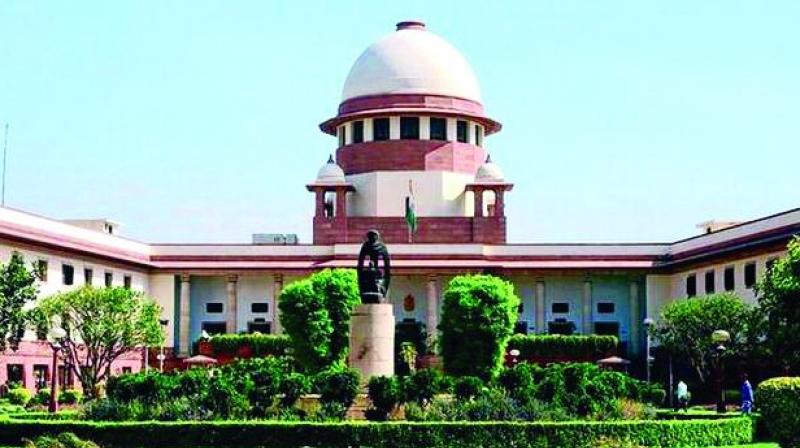Karnataka Assembly: Constitution passes agni pariksha'

No matter who wins the floor test today in the Karnataka Assembly, the Supreme Court has asserted its supremacy in the Constitutional scheme of things. We have always known that our Supreme Court was the most powerful institution in the world - considering the sweep of its powers.
It is a given that of the three pillars of democracy — Executive, Legislature and Judiciary, the Judiciary was suggested to have the least power as it had neither the 'sword' nor the 'purse' belonging to the other two, as Alexander Hamilton put it in the Federalist Papers — leading to the enactment of the US Constitution, way back in 1787. Now, look at what has transpired in India, since 1950 when the Supreme Court was formed.
It is the moral compass of the judiciary that has tilted the balance and with the Executive and Legislature plumbing the depths, the ascension to the throne for the apex court has been rather easy. This, despite the fact that of late we have seen the Supreme Court, as an institution, has come under huge stress and events held in the public eye have not added to its reputation.
On May 18, in an order of seminal importance, the Supreme Court has interfered with the 'discretion' and 'satisfaction' of the Governor of Karnataka to grant 15 days time to BS Yeddyurappa, to prove his majority on the floor of the House.
Instead of the 15-day period granted by the Governor, the Supreme Court has directed the confidence vote to be taken on May 19 at 16.00 despite protestations from BJP that they would need at least a few days time.
Abhishek Manu Singhvi and Mukul Rohtagi would be the thickest of friends, probably discussing the proceedings and the order of Supreme Court, over a cup of chai or something more colourful. That is the beauty of accepting the decision of the Constitutional scheme of things.
Nowhere else in the democratic world, such a dispute may have been taken to the top court, at the midnight hour and argued in the small hours even as the swearing-in was allowed to take place by not disturbing the decision of the Governor. But, equally, protecting the integrity of the democratic process by subjecting the swearing-in to further orders of the Court.
It is in such a scenario that the Supreme Court displayed today its might. It heard both sides. It declined to set aside the order of the Governor to call BSY at the first instance, as the single largest party. It observed that if it were to do that, it may have to have a full fledged hearing on the constitutionality of the 'order of call vested in the Governor', which would be time consuming and defeat the urgency.
Equally, while conceding the submission of BJP that the majority cannot be tested either in the Raj Bhavan or even before the Supreme Court - by way of affidavits - but only before the House, it refused to grant any more time than a day for the confidence vote to take place.
The apex court has struck a brilliant balance in concluding the debate on what is to be done to 'uphold the mandate of law in a manner known to law'. In a democracy, based on Westminster model, it is numbers that matter and no matter which option the Governor embraces, ultimately, the voting in the Assembly alone shall clinch the issue.
By directing the vote to take place, the Supreme Court cut short the time lag hugely, thus depriving any further opportunity for possible horse trading.It may be disappointing to the academically inclined and serious practitioners of Constitutional law that the top court did not go the whole hog and decide once and for all whether the Governor's discretion and satisfaction could be hemmed in by an arithmetically devised rote call.
That may have meant prolonging the agony of the system 24 x 7 and would not have augured well for a healthy democracy that is already frayed. Even while ordering the confidence vote to take place, it has consciously asked the incumbent CM not to take any policy decisions with financial implications. We need to salute the Supreme Court for the majesty and integrity with which it has handled the nasty imbroglio, born of the shenanigans of the rival parties and restoring the dignity the mother of all laws viz.
Constitution of India, that Babasaheb Ambedkar put together with care and concern. Our Constitution has passed the Agni pariskha with the Supreme Court showing the way. Will the parties and le-gislators follow the example?

